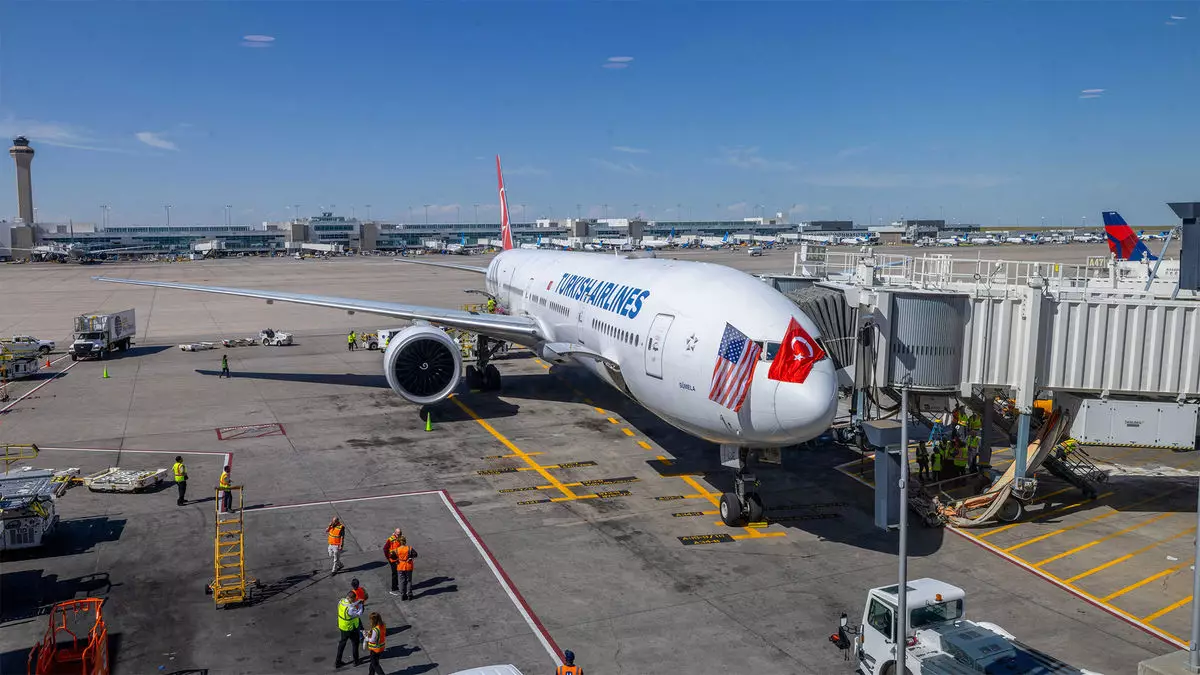Turkish Airlines has set its sights on expanding its presence in the United States, with plans to target key cities such as Minneapolis, Charlotte, Philadelphia, and Orlando as future destinations. The carrier’s chairman, Ahmet Bolat, expressed confidence in the airline’s growth potential during an interview in Denver, where Turkish Airlines had just landed for the first time. Currently, Turkish Airlines operates 14 U.S. routes, all originating from Istanbul, with a goal of increasing the number of destinations to 20 in the near future.
Flights and Fleet Expansion
The airline is currently serving Denver three times per week, with a planned increase to four times weekly starting on July 9th. Bolat emphasized the importance of expanding services in the U.S., including making the Istanbul-Detroit route a daily service and increasing the frequency of flights to Denver. Turkish Airlines has a significant number of Airbus A350 widebodies on order, with plans to double its capacity over the next decade, which includes increasing its fleet size to approximately 810 planes in total. The airline is also considering ordering the Boeing 777x to further support its growth ambitions.
Turkish Airlines, a Star Alliance member, currently serves 347 destinations in 130 countries, with additional plans to add 50 more destinations to its already extensive route network. In addition to expanding its U.S. presence, the airline aims to increase capacity in Africa, enhance frequencies across its network, especially in Asia, and enhance its positioning in the East-West connecting market where it competes with other major carriers like Emirates and Qatar Airways.
Rollout of NDC Program
In conjunction with its expansion plans, Turkish Airlines is also preparing to launch an NDC program, known as TK Connect, on October 1st. The carrier’s chief commercial officer, Ahmet Olmustur, highlighted the key features of the platform, which will provide travel advisors with direct access to booking options through three channels: direct connect, a web-based portal, or via approved aggregators like Amadeus, Sabre, and Travelport. The NDC program will offer enhanced capabilities for travel advisors, including the ability to sell ancillaries such as extra bags, extra-legroom seats, and other premium offerings.
Olmustur emphasized that Turkish Airlines aims to differentiate its product offerings through the NDC platform by removing some low-fare content from legacy GDS systems and streamlining the booking process for travel agencies. The airline plans to implement surcharges on legacy GDS bookings as part of the transition to TK Connect but has not disclosed specific details about the pricing structure. Despite the challenges faced by other airlines in rolling out NDC programs, Olmustur assured that Turkish Airlines has taken a proactive approach to address potential issues and learn from past experiences to ensure a smooth transition for travel advisors and passengers.
Turkish Airlines’ ambitious expansion plans in the U.S. and the rollout of its NDC program demonstrate the airline’s commitment to growth and innovation in the competitive aviation industry. By leveraging its extensive global network, fleet expansion, and technology enhancements, Turkish Airlines aims to strengthen its position as a leading player in the market while offering a seamless and enriched travel experience for its customers.


Leave a Reply